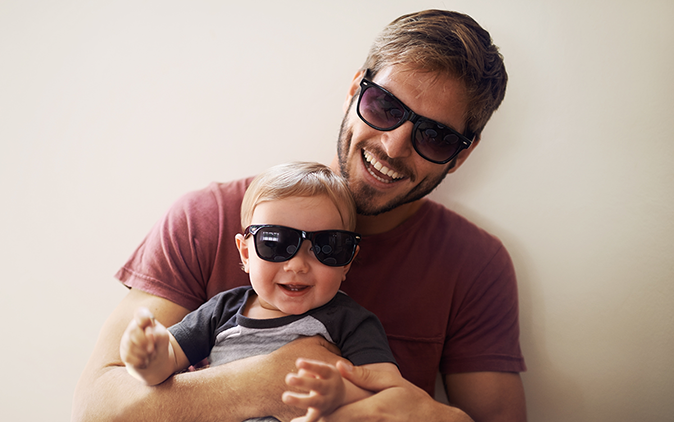Today’s Millennials, anyone born roughly between 1982 and 1999, are frequently described as technologically advanced and somewhat socially introverted. As a consumer, they are said to be predominantly online shoppers who demand fast service and competitive prices. I am 34 years young and technically a Millennial (often referred to as an Old Millennial—ouch!). I would describe myself as technologically competent, socially extroverted, and a consistent shopper of both online and brick and mortar businesses.
So, while some of the expectations and behaviors regarding Millennials ring true, in many ways they don’t quite fit the mold that society has cast for them. Let’s look at three prominent paradigms surrounding today’s Millennials, and the truths we found after more in-depth research. Then we will go one step further to see how researchers describe the Millennial healthcare patient of today.
Stereotype
Millennials don’t shop at brick and mortar stores.
Truth
- Millennials rely on online goods from a lot of categories. However, with speed and convenience being the top priority, they still frequent one-stop shops like pharmacies according to PBA Health.
- “Half of Millennial consumers have shopped at their favorite drugstore for more than five years. When considering only those who have stayed in the same neighborhood for that period of time, 60% are long-time shoppers…”
- “…31% percent of these shoppers describe themselves as “very loyal” to their drugstore.”
- “30% of young shoppers go to a drugstore at least weekly…This means you probably have a steady stream of repeat millennial customers coming into your pharmacy.”
Stereotype
Millennials don’t clip coupons. Savings isn’t the top priority when they are shopping.
Truth
- 40% of shoppers in this demographic rate coupons as a very important factor when buying products, they haven’t purchased before according to PBA Health.
- Mediapost.com shares that 97% of 18-34-year-olds own a smartphone according to Nielsen, and PRRI says 48% are money conscious and using digital coupons on a regular basis.
- 80% of Millennials say they search online for a coupon after hearing about it or seeing it on social media, according to Business Insider
Stereotype
Millennials are not brand loyal.
Trending products and brands will likely influence their future purchases.
Truth
- 31% percent of Millennial shoppers describe themselves as “very loyal” to their drugstore.
- Millennials as consumers want to feel validated in their purchase.. They seek out brands that make products that are healthy and safe, and companies that share their profits with philanthropic causes. “They also expect company companies to support the social issues and causes Millennial consumers make great marketers because they become advocates for products and brands they use and believe in.
What do Millennials find important when it comes to their health & what does this mean for the Healthcare industry?
Writer for the Chicago Tribune Sandra Boodman describes Millennials by stating that, “Their preferences – for convenience, fast service, connectivity and price transparency – are upending the time-honored model of office-based primary care.… convenience, fast service, connectivity and price transparency.”
Millennials are all currently under the age 39, and less likely to have chronic ailments that may affect older generations. As a result, Millennial preferences have pushed the use of a primary care physician to the bottom of the priority list. A national poll of 1,200 randomly selected people conducted in July 2018 by the Kaiser Family Foundation resulted in these findings:
- 45% percent of 18-29-year-olds had no primary-care provider
- 28% percent of 30-49-year-olds had no primary-care provider
- 82-86% of adults over the age of 50 do have a primary care provider
The average millennial patient relies on retail clinics for professional healthcare needs. A summary of the RAND Corporations 12 studies states that of the 1.3 million retail clinics surveyed, “…young adults (ages 18-44) account for 44% of retail clinic patients.”
Wrapping it Up
Maybe Millennials are much more complex than stereotypes would have you believe. They seem to be a group with strong preferences and distinct habits, curated by a world infinitely different from that of past generations.
As a healthcare patient, Millennials make their decisions and take action based on convenience. Pharmacies adopting and expanding their in-house healthcare services, are becoming an increasingly attractive option for Millennials. While there will always be a need for primary care physicians, the way that patients seek their expertise will ebb and flow as technology continues to advance.
This year, Millennials range anywhere between 20-38 years old, and as they age their needs and behaviors will change. So, today’s Millennial will look and act different ten years from now. Take a second to think back on some stereotypes you have believed regarding Millennials—and consider how many falsehoods you have heard regarding the generation you fall into? The next time your mind wanders into Labelville, take a detour, and ask before you assume!
Want more food for thought? We got you covered…


